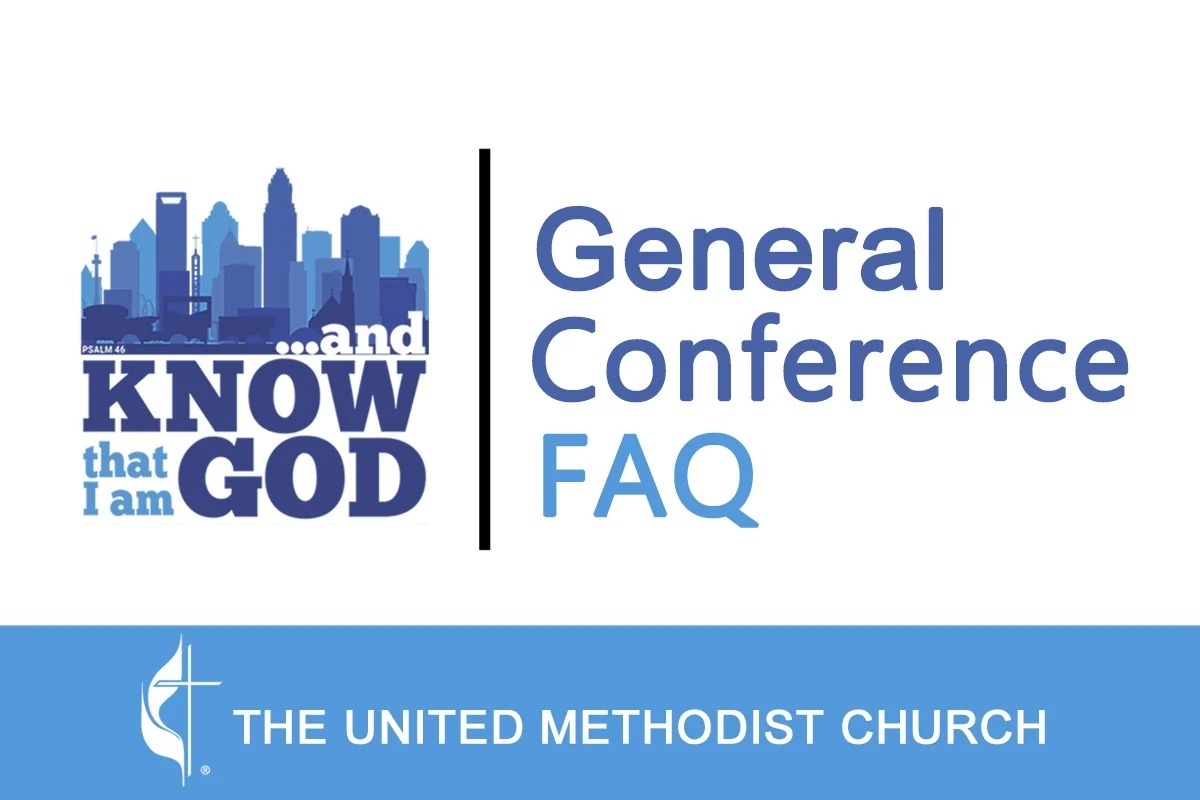About General Conference

The last time General Conference met in regular session was nearly eight years ago. The upcoming legislative assembly is scheduled for April 23-May 3 in Charlotte, N.C. Graphic by Laurens Glass, UM News.
What does General Conference do?
By Heather Hahn, assistant news editor for UM News
General Conference is the denomination’s highest legislative body. As such, it has the authority to make revisions to the denomination’s Book of Discipline and Book of Resolutions.
The Discipline is the denomination’s governing document that contains its doctrine, constitution, church law, rules of organization and procedures. The Book of Resolutions contains the denomination’s positions on current social issues. Resolutions expire after eight years unless General Conference readopts them.
General Conference approves the four-year budget allocating apportionments — shares of church giving — for denomination-wide ministries around the globe. General Conference also sets the formula used for apportioning the budget to annual conferences, the denomination’s regional bodies.
In addition, the assembly approves theological statements on subjects such as baptism and communion. The coming General Conference will consider adopting a theological statement on the United Methodist understanding of church titled “Sent in Love.”
General Conference also elects members of the Judicial Council, the denomination’s top court; members of the commission that plans General Conference; and some members of other denomination leadership bodies.
The Judicial Council will be on hand throughout General Conference to weigh in on questions about General Conference actions including whether legislation is in line with the denomination’s constitution.
Read more FAQ's about General Conference.
Watch this video about how General Conference works.

